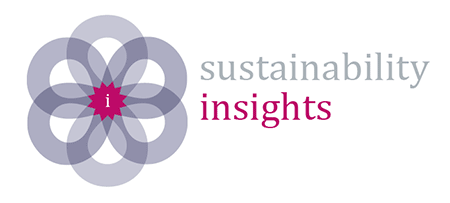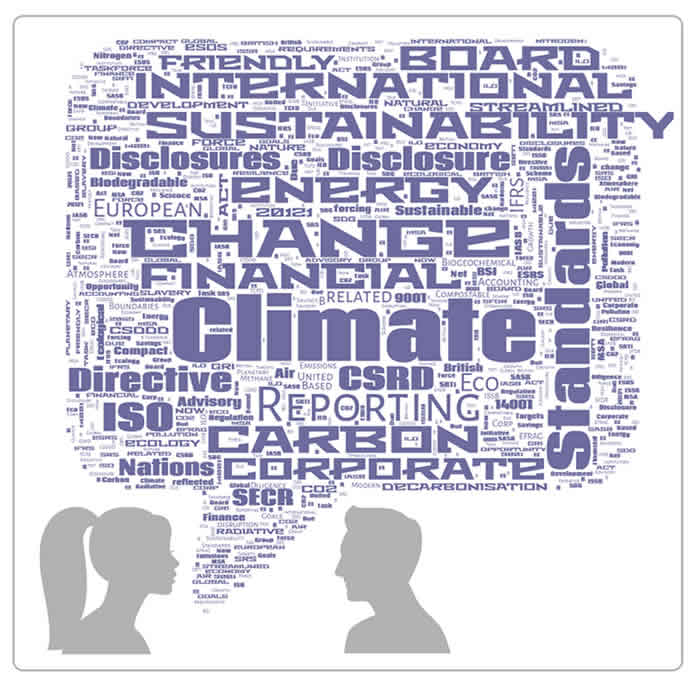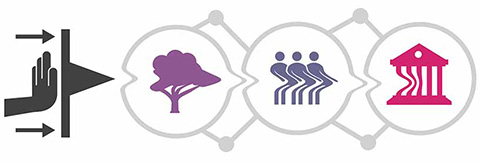Feeling like the lone voice on sustainability in your organisation? Sustainability Insights is where in-house sustainability professionals come together to swap ideas, tackle challenges, explore innovation and drive real sustainable change.
Never doubt that a small group of thoughtful, committed citizens can change the world. Indeed, it is the only thing that ever has.
Margaret Mead

Why join the Sustainability Insights Group?
Over the past 5 years hundreds of senior sustainability professionals have taken part, contributing to and benefiting from our monthly meetings.
Terrafiniti insights and solutions
For over 25 years we’ve supported and advised some of the world’s leading companies and not for profits. In each session we’ll share insights on best practice and the things organisations typically find challenging or get wrong.
Peer Collaboration
The meetings attract international sustainability specialists from diverse sectors. They provide a unique, safe, Chatham House Rule-based setting to engage with other sustainability professionals and learn from each other.
Personal and Professional Resilience
Members tell us that taking part in meetings provides supportive connections, builds motivation and reinforces resilience. The format of combining themed content plus discussion helps enhance sustainable business knowledge and navigate ever-changing sustainability challenges.
How does the Sustainability Insights group work?
Sessions are hosted by Joss and Dominic, Terrafiniti’s founding partners. Here’s how the group works …

A Featured Theme
Each session focuses on a featured sustainability theme and often focuses on topical issues. We use our knowledge, insights and experience to prime each session.

Group Discussion
Ask us difficult questions, engage with other senior sustainability professionals, share and explore challenges and opportunities. These are meetings, not webinars.

Trust & Share
We host small groups and follow the Chatham House Rule. While ideas are shared, personal identities are not and sessions aren’t recorded

Who
The meetings are for in-house sustainability professionals working in companies and charities – so if this is you, you’re welcome to join us!

Free to attend
The only cost is your time. We just ask that you make a constructive contribution (however small) and share your ideas and feedback.

When
Meetings are held online on the second Thursday of each month at 2pm (GMT/BST) and last for 1 hour. They are followed by an additional 30 mins Q&A where we can share learnings from our work with clients.
NEXT MEETING

Why Context is Critical for Strategy
15 January 2026 | 2pm (GMT) | 60 minutes + 30 minutes further Q&A
To succeed, companies need to understand their operating environment – the issues, trends and challenges that they need to navigate to deliver success. This means that context assessment should be the first step to effective strategy development. But in an increasingly complex, inter-connected world it can be difficult to cut through the complexity to understand what’s most important.
Companies have traditionally used strategic tools such as Porter’s 5 Forces, PESTLE and SWOT to help them to identify and navigate just what is important to their organisation and help them make strategic choices.
While these traditional approaches provide valuable insights, they often place disproportionate emphasis on an organisation’s current operational strengths. In many cases, this focus is logical, leveraging existing capabilities can often deliver immediate advantages.
However, in today’s rapidly evolving landscape, such approaches carry significant risks. Conventional tools frequently overlook or underprioritise emerging issues rooted in sustainability – climate change, nature loss, resource scarcity, social equity, and regulatory shifts – that increasingly define the context in which organisations must operate.
How can companies manage complexity, choose the right tools and approaches, and identify the critical battles and issues their sustainability strategies must address?
Join us for an insightful discussion
On January 15th, join Dominic and Joss, Terrafiniti’s founding partners, along with other senior sustainability professionals, to explore how to navigate sustainability context. We will explore and discuss:
- How to navigate the complexity of sustainability issues and stakeholder perspectives.
- Common missing and ineffective actions and what organisations can go wrong.
- Examples of good practice and useful tools and approaches.
- How your organisations have approached context analysis and what you have learnt.
Strategic assessment and sustainability strategy development is our core area of expertise, and we will share some of the most valuable insights we have gained over the last 25 years in helping businesses and non-profits pursue their objectives.
Hosts: Joss and Dominic, Terrafiniti’s founding partners.
Our live meetings also provide opportunities to gain insights from other participants – sustainability experts from diverse sectors.
Insights Q&A: After the main session, Joss and Dominic will stay online for an additional 30 minutes, you can ask more questions and we can share how we have helped our clients develop their strategies and approaches.
Don’t miss this opportunity to share experience and learning and find solutions to your sustainability challenges.
Want to join us at our next Sustainability Insights group meeting?
Register here to join the group and receive future invitations.
Future Sessions

People in Sustainability | 12 Feb 2026
Materiality | 12 Mar 2026
What have people said about the group?

It’s a great opportunity to share with peers. Joss and Dominic share a fantastic amount of knowledge with the Group.
Everyone was involved in the conversation and had the opportunity to contribute to the group dynamic.


Your approach is the best way to shape a network of experts ready to help each other. This is invaluable!
This is great - being surrounded by amazing minds.


Probably the best thing I've clicked
into in several years!
What have we covered?
We've explored materiality and what that means for sustainability professionals and their businesses, engaging with people in different roles on sustainability and greenwashing in business + much, much more ...

Sustainability Management – what does good look like?
December 2025
What are the core elements of sustainability management, and how do they align to keep your efforts focused, embedded in your organisation, and primed to drive performance, transparency, and accountability?

Setting Sustainability Ambition
November 2025
Understanding and defining ambition is a crucial element of sustainability strategy and management. Sustainability Ambition relates to areas and aspects where the company has a degree of choice to decide what, where and how it acts.

Sustainability and Value Creation
October 2025
Recognising the full value of sustainability is now a strategic imperative. Missed opportunities can expose you to financial, legal, market, and reputational risks, but seizing them can enable innovation and future-proof your business.

Communicating Sustainability – navigating the challenges & building trust
September 2025
In this interactive session, we explored the complexities of sustainability and ESG communication and discussed how to build credibility and clarity.

Sustainable Transition - the fundamentals of good practice
June 2025
Extending the theme of sustainability strategy from our May meeting, in June we focused on the topic of sustainable transition – how organisations articulate, plan and undertake the journey from where they are now to where they need to be in the future.

Building Sustainability Strategy – the most important aspects for success
May 2025
If your organisation doesn’t have an up-to-date, relevant and integrated sustainability strategy then it can be open to multiple risks, but more importantly you might be missing out on valuable sustainability and business opportunities.

Reputation management – how to manage risk by association
April 2025
Reputation is widely regarded as one of the most valuable assets of an organisation – and sustainability can be an important contributor to both reputation and other dimensions of business value. In April’s meeting, we explored different dimensions of reputational risk, how it can be affected, and how you can protect it.

ESG Backlash – what are we seeing, and what matters?
March 2025
Recent months have seen some pushback against ESG / sustainability policies, with shifts in company commitments and government attitudes.

Setting Long-Term Targets for Sustainability
February 2025
Setting – and importantly, declaring – long-term targets has always been a critical component of sustainability/ESG strategy and management. These targets, typically set 5-10 years in advance, or even longer for climate commitments, allow companies to align with global frameworks such as Net Zero goals or SDGs and provide the scaffold for planning and implementation plans.

The role of sustainability professionals in preventing greenwashing
January 2025
Much greenwashing is often the result of overenthusiastic or poorly informed marketeers. However, a significant amount arises from far more fundamental strategic challenges.
